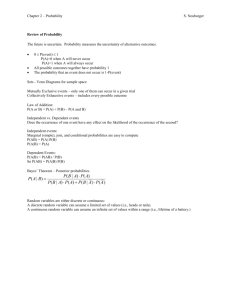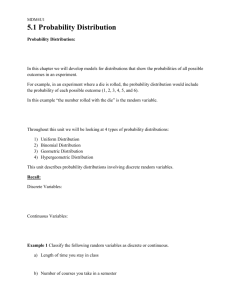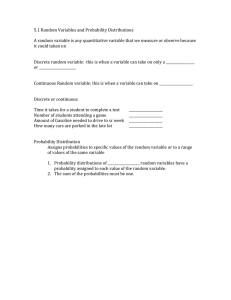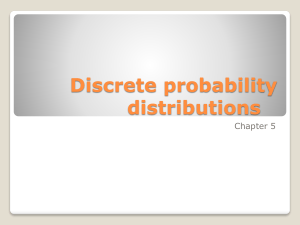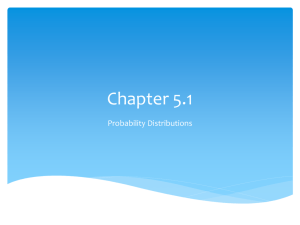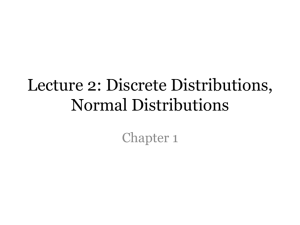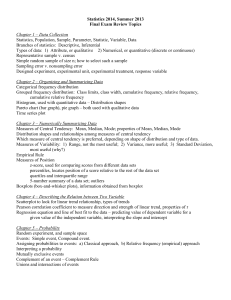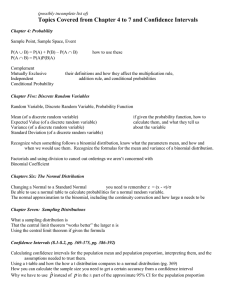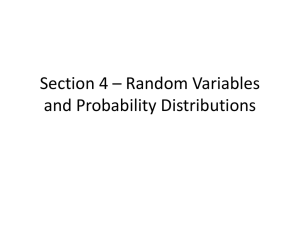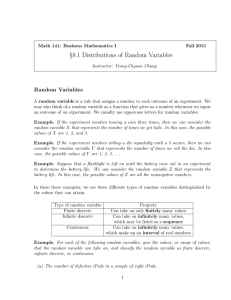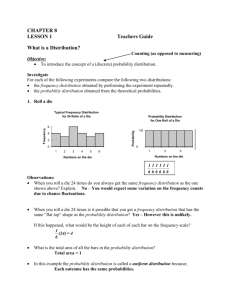Math 4030 Midterm Exam Review
advertisement
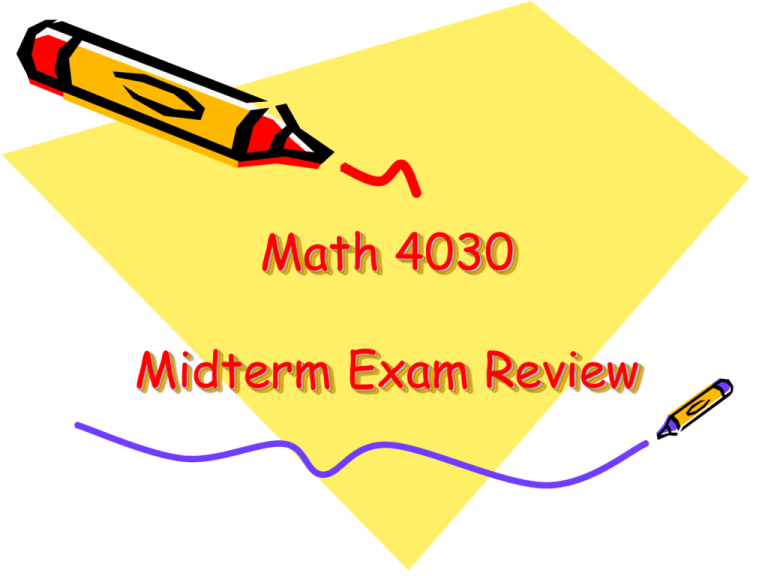
Math 4030 Midterm Exam Review General Info: • Wed. Oct. 26, Lecture Hours & Rooms • Duration: 80 min. • Close-book • 1 page formula sheet (both sides can be used), that will be handed in with the exam paper. No examples on the sheet. • Non-programmable Calculator (oldfashioned, not app!) Contents: • • • • Basic Concepts Descriptive statistics Sample space and events Classical probability and counting rules • Random variables • Discrete distributions • Continuous distributions Basic concepts: • Population vs sample • Variable vs Data (values) • Types of variables • Levels of measurement • Mutual exclusive events • Independent events • Random variables: discrete vs. continuous Descriptive statistics Tables: frequency tables (Grouped or ungrouped? How to define classes?) Graphs: bar chart, histograms, Pareto chart, Pie chart, Dot diagram, Box-plot and outliers, and stem-and-leaf (Which chart would you recommend?) Descriptive statistics • Mean and median which?) (when to use • Variance and standard deviation (for population or for sample) ? • Coefficient of Variation (What is it for?) • Percentiles special cases) (median, quartiles as Sample Space and Events: • List all outcomes in a sample space; • List all outcomes in an event; • Use Venn’s diagram to identify compound events (Union, intersection, and complement) Count: How many ways to … • Multiplication; • Permutation; • Combination; • Factorial Tree diagram can be helpful. Classical Probability: • Identify sample space; • Identify event; • Check if classical probability applies; • Count … Probability Rules: • Addition rule: mutually exclusive • Product rule: independent • Conditional probability (Bayes’ Theorem) • Complement rule • Venn diagram and tree diagram may help Random Variables: • Define a random variable; • Distribution of a discrete random variable; • Discrete: Probability function f(x) vs. Cumulative distribution function F(x) • Continuous: pdf vs CDF • Mean and variance • Chebyshev’s Theorem Discrete distributions: • Binomial: parameters, formula for probabilities • Poisson: parameter, formula for probabilities • Hypergeometric: parameters, formula, (sampling with replacement vs. without replacement) • Geometric: parameter, formula. • Let X be …, then X follows … Continuous distributions: • Uniform: parameters/interval, constant, probability can be found geometrically. • Normal: – Standard normal and Table 3 (Table 3 will be provided.) – Conversion between standard normal and general normal. – Find probability using Table 3. – Find cut-off values using Table 3. – z notation – Normal approximation to binomial (correction for continuity)

